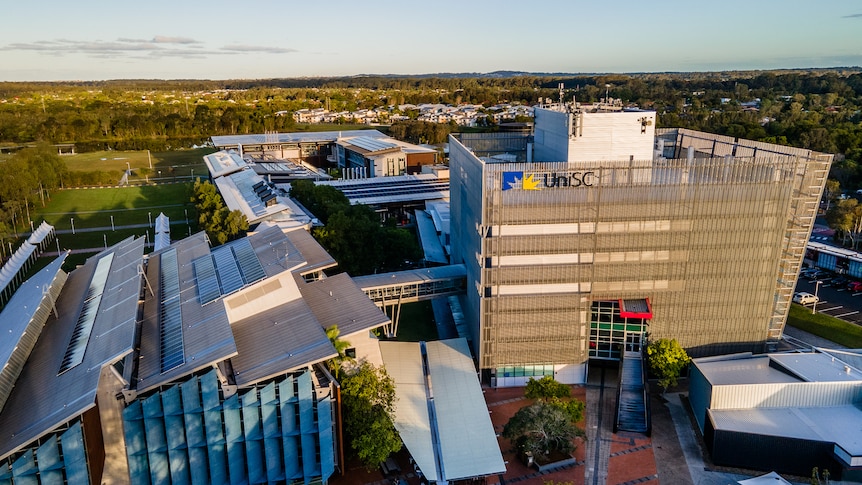Australia Weather News

Australian academics say cuts to science and education in the US are affecting local research. (Supplied: Sunshine Coast University)
Cuts to science agencies in the United States are causing "turmoil" in regional research projects run by universities across Australia.
Under US President Donald Trump, the US-based National Oceanic and Atmospheric Administration (NOAA) had its budget slashed and thousands of jobs cut.
The NOAA collects real-time data from satellites, aeroplanes, weather balloons, radar and maritime buoys, which is used by forecasters to help project seasonal conditions ahead of time.
The impact of the cuts to NOAA is being felt far beyond the US.
Australia's Bureau of Meteorology (BOM) often relies on US data for its ACCESS model, which produces daily weather forecasts.
Andrew Watkins is a research associate at Melbourne's Monash University and the former head of long-range forecasts at the Bureau of Meteorology.
He said the cuts would reduce access to crucial datasets, vital for Australia's ability to monitor and predict natural disasters, making regional communities more vulnerable to weather events.
"We know in the meteorological community that early warnings save lives, so the ability to put out early warnings of dangerous weather and climate events will be reduced if we don't have as much data," Dr Watkins said.
Aid cuts to hit Pacific
Academics at Australian universities say the cuts and deregulation of science will have a ripple effect for regional research.
Regina Souter heads the International Water Centre at Queensland's Griffith University.
Her work also relies on satellite data provided by NOAA to guide efforts to develop clean water and sanitation projects in the Pacific Islands.
Dr Souter said her funding was impacted after deep cuts to USAID took place, jeopardising their work.
"The Pacific Island countries are facing increasing challenges around water security as a consequences of climate change," she said.
"We are working on research projects with UN [United Nations] agencies and those specific projects were funded by USAID.
"So [because] one of the projects that was funded by USAID was put on hold, that means our ability ... to identify effective development next steps is being hampered."
The UNICEF project had to find funding from other sources and as a result has been severely scaled back.
'Culture of fear'
Some Australian academics fear funding could be cut if their research field becomes a target of the Trump administration.
University of the Sunshine Coast (USC) associate professor Gail Crimmins said it could discourage researchers from collaborating with the US.
"That edict [in the US] to report colleagues that are engaging in activities around equity, diversity, inclusion does create a culture of fear and suspicion and surveillance that we probably haven't seen since the likes of the McCarthy era," she said.
The McCarthy era was a period in 1950s America characterised by its intolerance of left-leaning ideas amid the spectre of the Cold War and communism.
Dr Crimmins said it was tricky finding people who were happy to come on record and say, "In Australia, my research has been impacted".
"Because by doing so we are exposing our colleagues to potential further surveillance and potentially harmful impacts on their academic careers," she said.
Looking elsewhere
Academics say researchers need to look beyond the United States for funding and scientific data.
A regional Queensland climate and marine scientist said working with large datasets you needed to be able to have almost unrestricted and uninterrupted access.
He asked the ABC to remain anonymous because he feared retaliation from the US administration toward both himself, and colleagues here and overseas.
"One hour I could get the data [from the NOAA] and the next hour it was down, and I couldn't get hold of it," he said.
"If we don't have access to the data from the earth system models, we can't make those projections, we can't assess those opportunities and risks."
Associate professor Naomi Barnes from the Queensland University of Technology (QUT) said the concerns about scientific research in the United States led her team to consider working with European partners instead.
"Part of our grant was an international collaboration grant funded by the Australian government," she said.
"We were going to go to the US and talk through this [our project] with colleagues.
"Two out of three of us have agreed that we need to probably look elsewhere, other than the US."
Dr Barnes said fortunately she could still fulfil the objective by going to Europe.
"In my field, people are going to be more likely just not to work with the US for the foreseeable future," she said.
Federal support needed
In reaction to the uncertainty enveloping joint US-Australian projects, there were calls for the federal government to step in.
QUT's Dr Barnes said federal support would help researchers and experts continue their work without the US.
"We have to come up with a way to not have to be reliant on the US because our national priorities no longer align with theirs," she said.
USC's Dr Crimmins said the government must "protect the dignity of that research" at risk from US cuts.
In a statement, the Australian Department of Education said it was already investing significantly in research and monitoring changes to joint projects with the US.
"Across the Australian government, total investment in research and development is projected to reach about $15.14 billion in the 2025-26 financial year," the statement said.
"The Department of Education is working with Australia's higher education sector to understand the impacts of potential US research funding cuts."
Australia's Department of Foreign Affairs and Trade said in a statement it was committed to supporting aid work in the Pacific.
"Recognising the impact of global aid cuts, we have re-prioritised our development assistance to dedicate 75 cents of every Australian development dollar to support the Indo-Pacific next year," a spokesperson said.
ABC